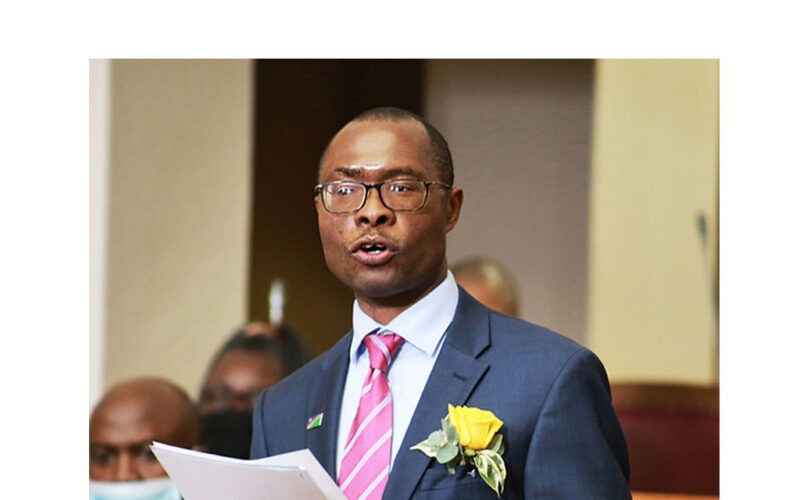Niël Terblanché
As Namibia navigates the path towards economic recovery and sustainable development, the National Budget represents a strategic effort to leverage the country’s improved economic outlook for the benefit of all Namibians.
Ipumbu Shiimi, the Namibian Minister of Finance and Public Enterprises, tabled the National Budget for the next fiscal year in Parliament yesterday.
The budget marks a crucial moment in the country’s economic management amidst global uncertainties and a recovering domestic economy.
Shiimi announced a comprehensive financial plan that aims to stimulate domestic demand, boost infrastructure development, and ensure fiscal sustainability while addressing the immediate needs of the nation’s most vulnerable populations.
He said the budget was crafted against a backdrop of stable macroeconomic fundamentals, the budget sets a theme of fiscal prudence, channelling resources towards urgent social sector needs, infrastructure investments, and providing relief to both households and corporates.
According to the minister, the budget emphasizes the importance of maintaining a delicate balance between addressing immediate spending requirements and building a legacy for future generations.
He said the budget prioritizes stimulating domestic demand through policy actions designed to boost household incomes and create a conducive environment for businesses to thrive. The minister added that the budget accelerates investments in productive public infrastructure with a significant increase in the development budget to upgrade and expand social infrastructure.
He said the budget also aims to cultivate fiscal prudence by maintaining a primary surplus, thereby moderating the pace of debt accumulation and ensuring Namibia’s ability to honour its debt obligations efficiently.
According to Shiimi, a substantial boost to revenues, stemming from improvements in tax administration and domestic economic recovery, has allowed for an expansion in the spending envelope.
This includes a notable increase in the operational budget and a significant rise in the development budget to address the country’s acute infrastructure backlog.
The budget also outlines specific measures to manage upcoming debt maturities, including the largest single debt maturity in Namibia’s history – the N$14.3 billion Eurobond due in October 2025.
In response to the pressing challenges of high unemployment, poverty, and income inequalities, Shiimi said the budget calls for the diversification of the economy and the creation of a conducive environment for the growth of nascent industries.
He added that the fiscal framework aims to address policy coordination gaps and administrative bureaucracies that hinder business operations and job creation.
Significant allocations have been made to the social sectors, with 50.7 percent of the budget dedicated to improving access to and quality of public services.
This includes substantial funding for basic education, healthcare, and social welfare programs, such as an increase in the Old Age and Disability Grants.
The budget also emphasizes the need for infrastructure development in critical areas like housing, water, and energy, aligning with Namibia’s economic policy priorities over the medium-term expenditure framework (MTEF).
Tax policy and administration reforms are central to the budget, aimed at providing relief to taxpayers, enhancing the competitiveness of Namibia’s tax system, and fostering private sector development.
These reforms include adjustments to income tax brackets, reductions in corporate tax rates, and initiatives to improve tax compliance and revenue mobilization.
Shiimi said that through careful fiscal management and targeted investments, the government aims to create a prosperous and equitable future for the Namibian child, in line with the vision of the late President Hage Geingob.




